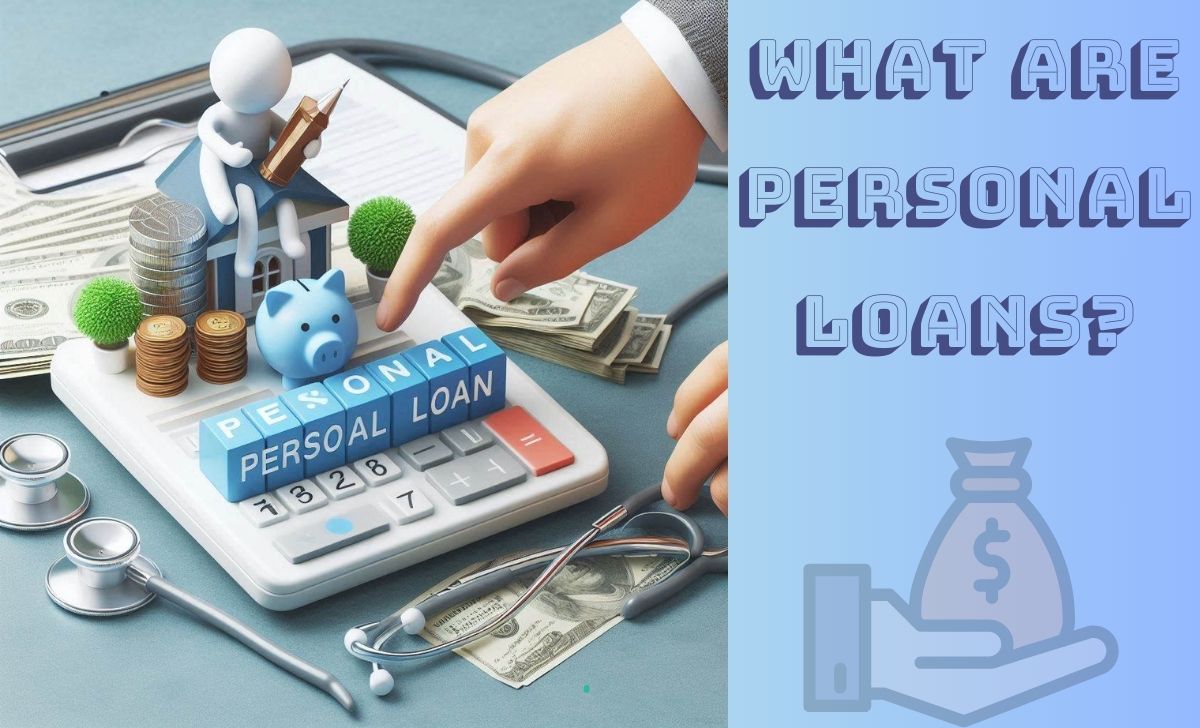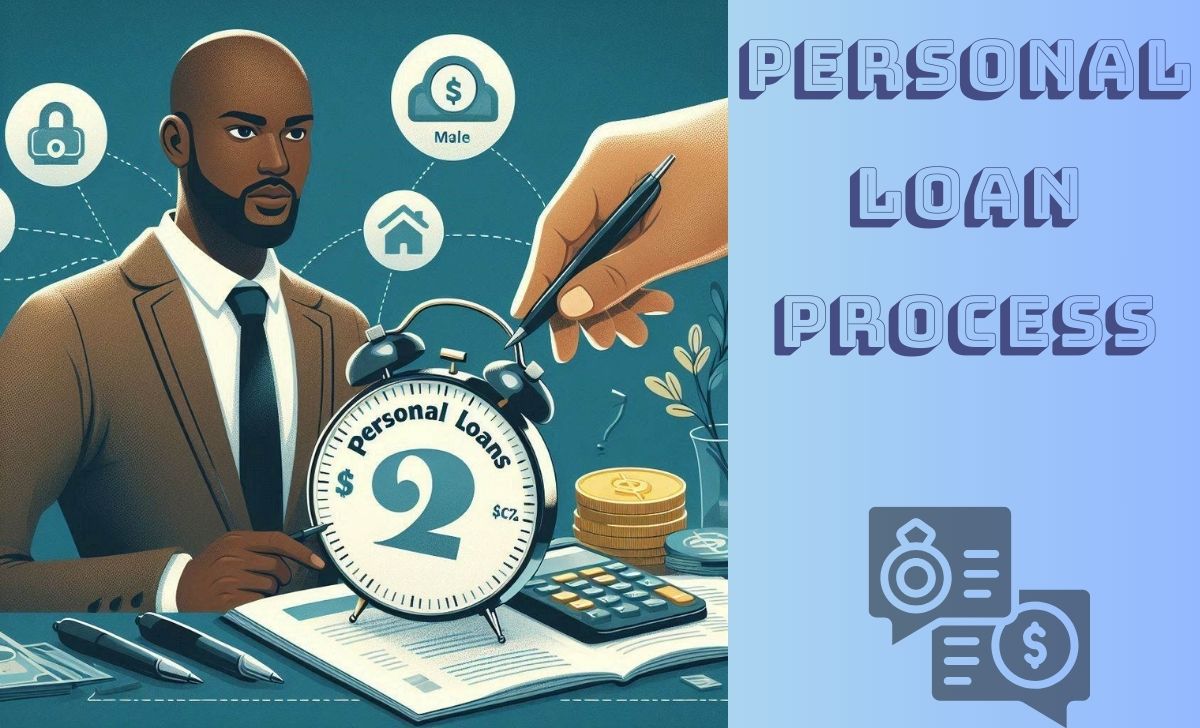Personal Loans is a familiar term to many people, especially when there is a sudden financial need. But not everyone understands this type of loan. Personal loans are a flexible form of loan, allowing individuals to borrow money to meet many different needs in life.
This article by AZCoin will help you better understand personal loans, how they work and important notes when using this service.
What are Personal Loans?

Personal loans are loans provided by banks, credit institutions or financial companies to individuals for personal use. This is a form of borrowing money that doesn’t require collateral and can be used for a variety of purposes such as paying bills, consumption, travel, tuition, home repairs or shopping.
How Personal Loans work

Personal loans work in a similar way to other installment crypto loans. When you apply for a loan, you receive a large sum of money from a bank, credit union or online lender.
Once you receive the money, you need to repay it in regular payments, usually monthly, over an agreed period of time ranging from a few months to a few years. Personal loans can have a fixed or variable interest rate, depending on the terms of the loan agreement.
Outstanding features of Personal Loan
Personal loans have some outstanding features as follows:
No collateral required
Unlike other loans such as home loans or car loans, personal loans usually don’t require collateral. This means that you don’t need to deposit valuable assets such as a house, car or other assets to secure the loan. Therefore, personal loans become popular with people who don’t have collateral or don’t want to put personal assets at risk.
High flexibility
One of the outstanding advantages of personal loans is the flexibility in using the loan. You can use the loan for many different purposes such as paying for tuition, paying medical bills, repairing your home or organizing a trip. This flexibility helps you meet your financial needs quickly and effectively without being limited by a specific purpose.
Flexible loan terms
The loan term of a personal loan can range from a few months to a few years, depending on the agreement between you and the lender. A shorter loan term allows you to repay the loan quickly and reduce the total amount of interest you pay, while a longer loan term can help reduce your monthly payments.
Fixed or variable interest rates
Personal loans can have either a fixed or variable interest rate. Fixed rates make it easier to predict your monthly payments, while variable rates can change based on market conditions. This can cause instability in the loan, depending on future interest rate trends.
Simple loan process
The personal loan application process is usually quite simple. You only need to provide the necessary documents such as proof of income, credit history and basic personal information. The bank or credit union will review your application and make a lending decision based on factors such as your ability to repay and your credit score.
Personal Loans example
To better understand the cost of a personal loan, let’s look at a concrete example. Let’s say you borrow $10,000 at an annual interest rate (APR) of 7.5% and a loan term of 24 months. With these terms, your monthly payment would be $450 and your total interest over the life of the loan would be $799.90.
If you change the loan term to 36 months and the interest rate drops to 6%, your monthly payment would drop to $304, but your total interest would increase to $951.90. Comparing these numbers helps you choose the loan with the lowest monthly payment or lowest total interest rate that fits your budget. To explore various options and find the best fit for your needs, consider using Upstart for personalized loan offers.
Personal loan process

The personal loan process usually includes the following steps:
- Prepare documents: You need to prepare necessary documents such as ID card/CCCD, proof of income (salary sheet, bank statement), labor contract and other related documents depending on the bank’s requirements.
- Loan application: You can apply for a loan online through the bank’s application or go directly to the bank branch to submit your application.
- Application appraisal: The bank will appraise your application, check personal information, financial capacity and credit history.
- Loan approval: After appraisal, the bank will notify the approval result. Approval time can range from a few hours to a few days depending on the bank.
- Signing a loan contract: If the application is approved, you will sign a loan contract with the bank. This contract will clearly state the loan terms, interest rate, loan term and other conditions.
- Disbursement: After signing the contract, the bank will disburse the loan to your account. You can use this money for the registered purpose.
For those looking to manage their personal finances efficiently, including potential investments, AZcoin – the best crypto exchange in 2024 – can offer useful insights and tools.
When should you choose a personal loan?

You should choose personal loans in the following cases:
- Urgent need for money: When you need a quick amount of money to solve urgent problems such as medical expenses, home repairs or other unexpected situations.
- No collateral: If you don’t have assets to mortgage or don’t want to mortgage your assets, a personal loan is a suitable choice.
- Versatile use: When you need money for many different purposes such as shopping, traveling, studying or paying off other debts.
- Simple procedures: If you want to avoid complicated and time-consuming procedures, a personal loan with a simple and quick process will be a good choice.
Things to keep in mind when taking out a personal loan

When taking out a personal loan, you should keep the following points in mind to ensure that the loan process goes smoothly and avoid unwanted risks:
- Check interest rates and fees: Learn carefully about interest rates and related fees such as application processing fees, early repayment fees and other fees. This will help you avoid being surprised by unexpected costs.
- Read the loan agreement carefully: Before signing the contract, read the terms and conditions carefully. Make sure you understand the interest rate, loan term, fees and repayment obligations.
- Determine your repayment capacity: Assess your financial capacity to ensure that you can repay the loan on time. Avoid borrowing an amount that is too large for your repayment capacity.
- Choose a reputable bank or financial institution: Choose a reputable and trustworthy bank or financial institution to ensure that your rights are protected.
- Check your credit history: A good credit history will make it easier for you to get approved for a loan with a more favorable interest rate. Check and improve your credit history if necessary.
- Consider other loan options: Before deciding on a personal loan, consider other loan options such as a mortgage, a personal loan from a relative or other forms of borrowing that may better suit your needs.
- Make a repayment plan: Create a detailed repayment plan and stick to it to avoid penalties or damage to your credit history.
Conclusion
Hopefully with the above information, you have a clearer view of personal loans and can make a smart decision about whether to borrow money or not. Don’t forget to follow the next articles of AZcoin to update more useful financial knowledge!

I’m Jessi Lee, currently living in Singapore. I am currently working as a trader for AZCoin company, with 5 years of experience in the cryptocurrency market, I hope to bring you useful information and knowledge about virtual currency investment.
Email: [email protected]











